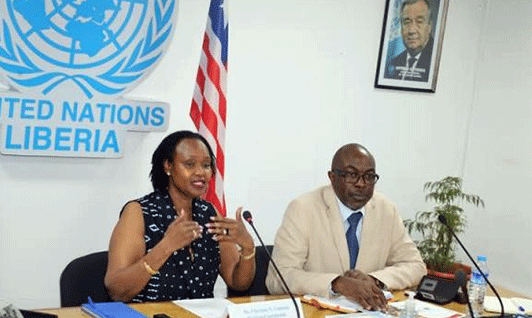The United Nations Population Fund (UNFPA), in collaboration with the Ministry of Youth and Sports and the Liberia Institute for Statistics and Geo-Information Services (LISGIS), is set to launch the State of the World Population Report 2025.
According to a press statement, the 2025 report is titled “The Real Fertility Crisis: The Pursuit of Reproductive Agency in a Changing World.” It was released globally on June 10, 2025, in Nairobi, Kenya, by Dr. Natalia Kanem, Executive Director of UNFPA.
The State of World Population Report is an annual publication by UNFPA that analyzes global population trends, focusing on sexual and reproductive health and rights. During the launch event, Richard Nagbe Koon, the House Speaker of the 55th Legislature, will deliver the keynote address.
This year’s report highlights that millions of people worldwide are unable to achieve their desired number of children, whether they want more, fewer, or none at all. It emphasizes that the most significant reproductive decision a person can make—when, whether, and with whom to have a child—is being undermined. The struggle for individuals to meet their fertility goals represents the real fertility crisis, rather than concerns about overpopulation or underpopulation.
The report asserts that reproductive agency goes beyond freedom from coercion or improved access to services; it encompasses a full range of conditions that enable people to exercise their reproductive rights and make genuine choices. These conditions include gender equality, economic stability, decent health, and confidence in the future.
The national launch will feature a high-level panel discussion with representatives from the Government of Liberia, civil society, development partners, and youth, reflecting on the report’s implications within the Liberian context.
This year’s report is based on a survey of over 400,000 people across 14 countries, revealing that economic circumstances, housing crises, climate change, war and conflict, pandemics, and challenges in finding a partner are significant factors influencing people’s decisions about having children.
Additionally, the UNFPA calls on governments and stakeholders to create conditions that allow those who genuinely wish to embrace the joys of parenting to fulfill their fertility goals. The organization advocates for a future where people have hope for a supportive environment that protects their choices and rights, ensuring that their children and future generations can thrive.



